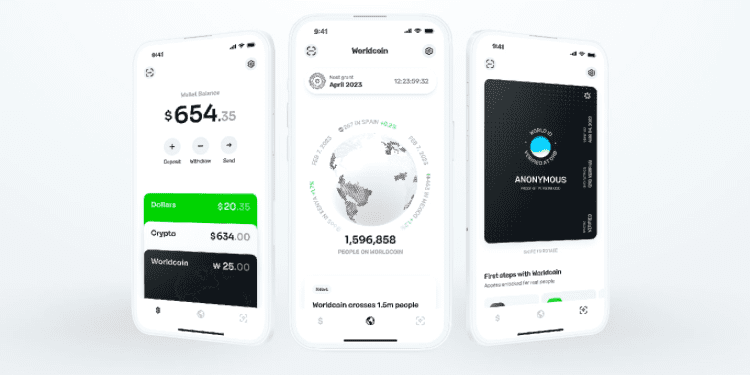- Authorities in several countries raise their eyes over the cryptocurrency project, Worldcoin’s data collection method.
- Worldcoin activities in Kenya are suspended until authorities conclude the investigation into data collection methods.
- French authorities accuse Worldcoin of using questionable routes for its data collection.
The cryptocurrency project, Worldcoin, has received suspicious eyes and probing for a while now from different authorities. Argentine Authorities have become the latest government officials to look into Worldcoin over reports of privacy violations. The project’s data collection method, currently the retinal scans, sparked concerns in different countries and has opened it up to investigations.
Reports have stated that the Agency for Access to Public Information has started investigating Worldcoin, with reports insinuating there have been probes in France, Germany, and Kenya. The agency announced its investigation on August 8, detailing that they were investigating the cryptocurrency project over its collection, storage, and use of customer information to ascertain that it complies with security and privacy regulations.
The cryptocurrency project, Worldcoin, launched its token in July with the specific goal of verifying its users through retinal scans, which led to concerns from concerned users over the possibility of privacy concerns not being followed.
The Agency for Access to Public Information also added that it believes citizens have the right, whenever they provide personal information, to have clear and accessible data in connection to the assignment, use, and purpose for which the information was obtained and processed, especially when the data collected is considered sensitive.
Worldcoin boasted more than two million account sign up before the launch of its token in July. Although, after the distribution of retinal scanners, the state office for Data protection supervision for Germany’s Bavarian called for an investigation over reports of privacy concerns, and the French national commission on Informatics and Liberty soon followed suit, calling the route Worldcoin was using to collect data a “questionable” one.
A week ago, the minister for internal security in Kenya announced the country’s plan to suspend Worldcoin’s local operations until Kenyan authorities were able to properly assess if the project’s data collection method proved as a potential risk to residents.
Kenyan local news media also reported last week that the country’s authorities had raided a Worldcoin property and seized equipment that could have contained user data.
Conclusion
A key reason for the source of fear from the authorities in these countries could be how hackers have been able to use personal information to exploit vulnerable users. While Worldcoin may not use it, hackers who can get access to their data collection systems could make use of it instead, thereby endangering the users whose data they hold.
Currently, these countries have not concluded their investigations. In countries like Kenya, all Worldcoin activities have been suspended to give the authorities enough time to probe and ascertain if they are a risk to the residents, while Argentina just got on board the investigation route, so it is unclear when Worldcoin would be free of probing.














